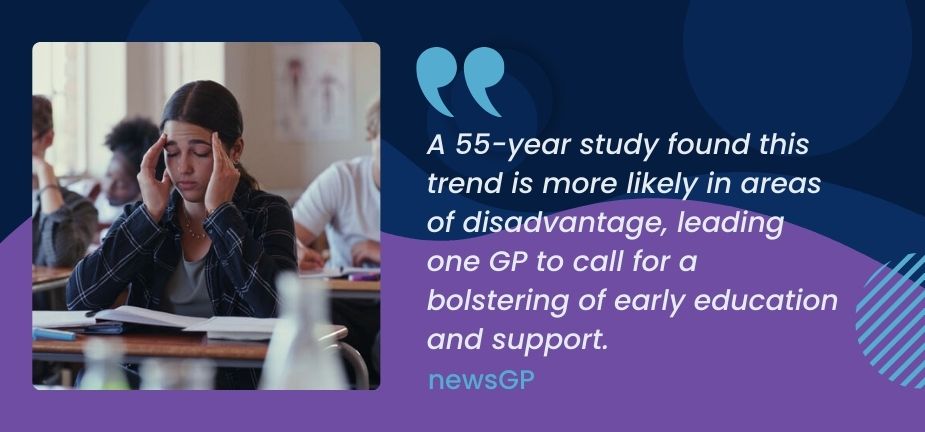A/Prof Magdalena Simonis AM was invited to comment on the Girls’ periods starting earlier and more irregular: Study by newsGP and was interviewed live on ABC Drive time.
Key Points
‘A significant proportion of students are getting their first period as early as year 3 or even year 2, but primary school students are not officially taught about puberty until years 5 and 6 which suggests that talking about periods and pubertal changes earlier in primary school is warranted,’
In the study
- Half of respondents said they had skipped school for at least an entire day because of their period,
- When students do attend school through their period, 74% said they often find it difficult to pay attention.
- Periods and menstruation remains a taboo subject for many, especially young girls,
- With 37% of women talking about their periods only if they have concerns.
- Women are calling for their doctors to take a more active approach in their period management.
- 44% saying they would like healthcare professionals to proactively discuss this in consultations.
M Simonis Comments
- We need better, earlier education around menstruation and to remove the stigma associated with menstruation.
- ‘It is a normal phase of maturation, and increasing awareness and removing the stigma may reduce the incidence of shame around this, and the mental health issues that can develop from feelings of embarrassment from early school days can be avoided.’
- Calling for Australia to bolster its education offerings about periods, with many children not taught about menstruation and puberty until late primary school.
Read the newsGP article >>
Associate Professor Magdalena Simonis AM is a Past President of the AFMW (2020-2023), former President of VMWS (2013 & 2017-2020) and current AFMW National Coordinator (2024-2026). She is a full time clinician who also holds positions on several not for profit organisations, driven by her passion for bridging gaps across the health sector. She is a leading women’s health expert, keynote speaker, climate change and gender equity advocate and government advisor. Magda is member of The Australian Health Team contributing monthly articles.
Magdalena was awarded a lifetime membership of the RACGP for her contributions which include past chair of Women in General Practice, longstanding contribution to the RACGP Expert Committee Quality Care, the RACGP eHealth Expert Committee. She is regularly invited to comment on primary care research though mainstream and medical media and contributes articles on various health issues through newsGP and other publications.
Magdalena has represented the RACGP at senate enquiries and has worked on several National Health Framework reviews. She is author of the RACGP Guide on Female Genital Cosmetic Surgery and co-reviewer of the RACGP Red Book Women’s Health Chapter, and reviewer of the RACGP White book
Both an RACGP examiner and University examiner, she undertakes general practice research and is a GP Educator with the Safer Families Centre of Research Excellence, which develops education tools to assist the primary care sector identify, respond to and manage family violence . Roles outside of RACGP include the Strategy and Policy Committee for Breast Cancer Network Australia, Board Director of the Melbourne University Teaching Health Clinics and the elected GP representative to the AMA Federal Council. In 2022. she was award the AMA (Vic) Patrick Pritzwald-Steggman Award 2022, which celebrates a doctor who has made an exceptional contribution to the wellbeing of their colleagues and the community and was listed as Women’s Agenda 2022 finalist for Emerging Leader in Health.
Magdalena has presented at the United Nations as part of the Australian Assembly and was appointed the Australian representative to the World Health Organisation, World Assembly on COVID 19, by the Medical Women’s International Association (MWIA) in 2021. In 2023, A/Professor Simonis was included on the King’s COVID-19 Champion’s list and was also awarded a Member (AM) in the General Division for significant service to medicine through a range of roles and to women’s health.

